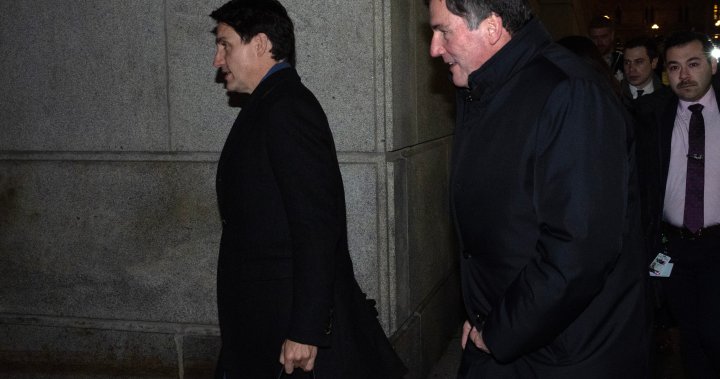Paragraph 1: Political Turmoil in Canadian Parliament
The Canadian political landscape experienced a significant shake-up on Monday, December 16, 2024, as Liberal MPs convened for a caucus meeting amidst growing uncertainty surrounding Prime Minister Justin Trudeau’s leadership. The meeting followed a day of high drama that saw the resignation of Finance Minister Chrystia Freeland and the subsequent appointment of Dominic LeBlanc to the crucial portfolio. While some Liberal MPs expressed their unwavering support for Trudeau, others openly voiced dissent, highlighting a clear division within the party ranks. The central question hanging over the proceedings remained: does Trudeau retain the confidence of his caucus, and will he continue to lead the Liberal Party? The tight-lipped response from most MPs exiting the meeting only fueled speculation and intensified the sense of political instability.
Paragraph 2: Silence and Divided Loyalties within the Liberal Caucus
The veil of secrecy surrounding the caucus meeting added to the prevailing tension. Most Liberal MPs declined to comment as they left, citing the confidentiality of internal discussions. This silence, however, spoke volumes. While MPs like Ruby Sahota and James Maloney affirmed their support for Trudeau, their assurances were countered by the vocal opposition of others, such as Chad Collins, who publicly called for the prime minister’s resignation earlier in the day. Collins’ assertion that the party was not united and that a significant number of members desired a leadership change exposed the depth of the rift within the Liberal Party. This division raised questions about Trudeau’s ability to effectively govern and maintain party cohesion.
Paragraph 3: Freeland’s Resignation and LeBlanc’s Appointment: Shifting Sands in the Ministry
Chrystia Freeland’s abrupt resignation as finance minister further destabilized the government and added another layer of complexity to the political drama unfolding in Ottawa. Her departure from the key cabinet position left a void at a critical time for the Canadian economy, facing significant challenges both domestically and internationally. The swift appointment of Dominic LeBlanc as her replacement signaled the government’s attempt to project an image of stability and continuity. LeBlanc, a seasoned politician and close confidante of Trudeau, was tasked with navigating the turbulent economic waters and reassuring Canadians amidst the political uncertainty.
Paragraph 4: LeBlanc’s Priorities: Affordability and US Trade Relations
Following his swearing-in ceremony, LeBlanc stressed the government’s commitment to addressing the concerns of Canadians, particularly regarding affordability. He emphasized the importance of focusing on the economic challenges facing the country and downplayed the political turmoil surrounding the leadership question. LeBlanc outlined two key priorities: tackling affordability issues for Canadians and navigating the potentially challenging trade relationship with the incoming American administration. His emphasis on these economic concerns suggested a strategic effort to shift the public’s attention away from the internal political strife within the Liberal Party.
Paragraph 5: The Shadow of US Trade Policy Looms Large
LeBlanc’s explicit mention of the potential for trade friction with the United States underscored the significant economic challenges facing Canada. The prospect of new tariffs or trade barriers posed a serious threat to the Canadian economy, particularly at a time of domestic economic uncertainty. LeBlanc’s acknowledgment of this challenge signaled the government’s awareness of the importance of maintaining a stable and productive trade relationship with its largest trading partner. It also highlighted the need for a strong and unified approach to navigate these complex international relations, which would be difficult to achieve amidst internal party divisions.
Paragraph 6: Trudeau’s Future Hangs in the Balance: A Nation Watches and Waits
The caucus meeting, Freeland’s resignation, and LeBlanc’s appointment all underscored the precariousness of Trudeau’s political position. The prime minister’s future remained uncertain as the Liberal Party grappled with internal dissent and the challenges of governing amidst economic and international pressures. The events of Monday, December 16th marked a significant turning point in Canadian politics, leaving the nation on tenterhooks, awaiting the next development in this unfolding political drama. The question of Trudeau’s survival as leader hung heavy in the air, with the potential for further political upheaval looming large. The coming days and weeks promised to be crucial in determining the direction of the Liberal Party and the future of Canadian politics.

